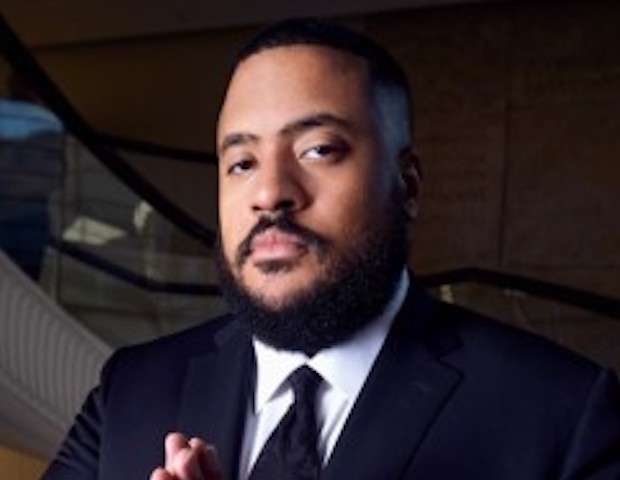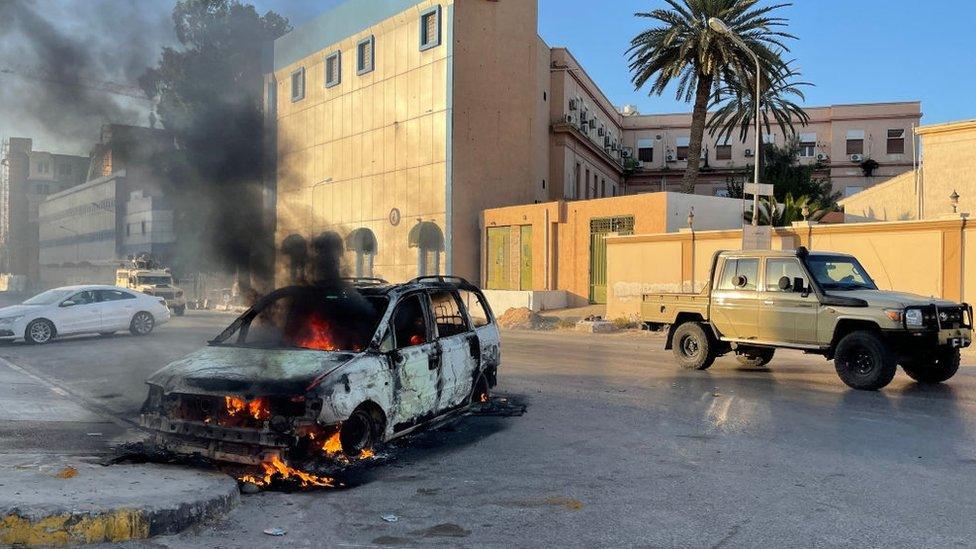Yassin K. Fawaz: Muammar Gadhafi rule still haunts Libya

In October 2011, Muammar Gadhafi, one of the world’s most flamboyant and feared dictators, was captured and killed by rebels in Sirte, his hometown. With his death came scenes of jubilation across much of Libya. It marked the end of a 42-year regime that combined pan-African grandiosity with brutal repression. Yet today, his absence feels strangely illusory. Libya remains a nation at war with itself, struggling to form a coherent state. More than a decade later, Gadhafi’s ghost continues to shape the nation’s politics, identities and memory.
This haunting is not metaphoric alone. It is visible in the towns rendered uninhabitable by revenge, in the political slogans that echo his rhetoric, and even in the resurrection of his image, sometimes literally, by opportunists and nostalgic loyalists. The fall of a dictator, it seems, was not the end of his influence, but merely a transformation.
At the time of Gadhafi’s death, Libya was celebrated as a potential Arab Spring success. Unlike Syria, whose revolution slid into permanent war, Libya’s international backers, most notably France, Britain and the United States, hoped a post-Gadhafi Libya could be reshaped into a modern state. Those hopes were premature. Institutions collapsed, and the transitional government quickly lost legitimacy. What emerged instead was a power vacuum, filled by rival governments, competing militias and foreign proxies.
In this chaos, the memory of Gadhafi grew, rather than diminished. Some Libyans began to recall his dictatorship, brutal as it was, with a sense of bitter nostalgia. Under Gadhafi, they say, there was order, stability and even prosperity for some. The streets were safe. The oil flowed. Now, with no unified leadership and two rival governments, Libya is divided and lawless. The longing for a central authority, any central authority, has brought Gadhafi’s legacy back into the political discourse.

This is not merely abstract. In 2021, Seif al-Islam al-Gadhafi, the dictator’s most prominent son, emerged from years in hiding to announce a presidential bid. Though disqualified by some courts, his candidacy reflected a yearning among portions of the population, particularly in the south and among certain tribal factions, for a return to the past. His appearance, complete with the same spectacles and regal tone as his father, was not lost on voters. He was not running despite his father’s legacy, but because of it.
Perhaps nowhere is Gadhafi’s legacy more visible than in the fate of Tawergha, a town once home to tens of thousands, mostly black Libyans who were loyal to the regime. In 2011, as the war neared its end, Tawergha was accused of supporting Gadhafi’s forces during the siege of nearby Misrata. In retaliation, militias from Misrata razed the town. Homes were torched, residents fled, and today it stands largely empty, its people living in makeshift camps around the country, barred from returning.
Tawergha has become a literal ghost town, symbolic of post-revolutionary Libya’s deep fractures. Instead of reconciliation, the country has indulged in cycles of revenge. Entire communities have been erased or marginalised due to their past affiliations, while justice has been selective, if not entirely absent. Gadhafi’s death may have ended a dictatorship, but it left unresolved the ethnic, tribal and regional tensions he once suppressed with force.
Gadhafi ruled Libya with a mixture of tribal manipulation and brute force, dismantling institutions that might challenge his authority. He famously replaced the constitution with his own “Green Book,” and emphasised personal loyalty over state structure. Today, the cost of that institutional vacuum is clear.
The country is effectively split in two: the western region governed from Tripoli, and the eastern region controlled by Khalifa Haftar, a warlord backed by Egypt, Russia and the UAE. In between are countless militias, some operating as de facto governments, others as criminal enterprises. Armed groups control airports, oil terminals and prisons. Rule of law is nonexistent.
The recent assassination of Abdel Ghani al-Kikli, the head of the powerful Tripoli-based militia known as the Stability Support Apparatus (SSA), has sent shock waves through the capital. Al-Kikli wielded significant influence as a paramilitary commander whose forces acted as a de facto security provider for parts of Tripoli, while also exercising considerable political power behind the scenes. His death destabilised the already fragile balance of power among rival armed groups in the city, triggering deadly clashes and underscoring how militia leaders remain central to Libya’s fractured state.
Foreign mercenaries, including Russian Wagner Group (renamed Africa Corps) fighters and Sudanese paramilitaries, continue to operate inside Libya. It is a tragic irony: Gadhafi, who once styled himself as a pan-African leader and anti-imperialist, has left behind a country dependent on foreign actors and interventions. Sovereignty is now fragmented. Libya belongs to everyone, and no one.
Efforts to hold national elections have repeatedly failed. A 2021 vote, meant to be the first since 2014, was postponed indefinitely due to disagreements over who could run and how the vote would be conducted. Seif al-Islam Gadhafi’s candidacy was particularly divisive. Some saw it as an affront to the revolution; others saw it as a chance for redemption.
“Libya’s tragedy is not just that Gadhafi ruled for so long, but that he left so little behind. No strong institutions, no civic culture, no roadmap for succession, only a void.”
A new set of proposals, recently finalised by the UN mission in Libya, aims to resolve long-standing disputes over the electoral framework. Yet few Libyans believe elections will occur anytime soon. The electoral process has become less about legitimacy and more about leverage: a tool used by rival camps to stall or extract concessions. Gadhafi’s obsession with direct “people’s rule” may have been farcical, but at least it feigned a structure. Today, the democratic promise of the revolution remains in suspended animation.
Without elections, Libya remains stuck in a transitional limbo. Each rival authority claims legitimacy while undermining the other. Meanwhile, ordinary Libyans have become disillusioned. In the absence of democratic progress, conspiracy theories flourish, often invoking the idea that the West deliberately destabilised Libya to prevent it from becoming strong again, a view Gadhafi himself once propagated.
Libya’s economy, once tightly controlled by Gadhafi and funded by oil riches, is now at the mercy of regional power brokers. In late May, the eastern government, aligned with Khalifa Haftar, threatened to declare force majeure on key oil fields. The move was triggered by a dispute over control of the National Oil Corporation (NOC), whose Tripoli-based leadership is accused by eastern factions of corruption and bias. Though the NOC insists production remains stable, the mere threat reveals how oil, once a tool of central authority, has become a weapon of factional bargaining.
Libya’s oil wealth, which could rebuild the country, is instead locked in geopolitical wrangling, another ghost of the centralised control that Gadhafi once wielded with absolute power.
While many Libyans suffered under Gadhafi, especially political prisoners and dissenters, he cultivated a brand that remains oddly compelling. His flamboyant robes, all-female bodyguard corps, pan-African speeches and eccentric vocabulary made him a character as much as a tyrant. Even today, videos of him circulate on social media with nostalgic commentary. Some young Libyans, too young to remember his crimes firsthand, view him as a strong leader who stood up to the West.
Not too long ago, videos of a Gadhafi impersonator parading through crowds surfaced online, met with cheers and phone cameras. This phenomenon reflects not just nostalgia, but political exhaustion. When every new regime fails to deliver, the past begins to seem golden, no matter how bloodstained it was.
Abdulhamid Dbeibah, appointed as prime minister of the UN-backed Government of National Unity (GNU) in 2021, was tasked with leading Libya out of years of division. However, his administration has struggled to unify the country or hold national elections. Political infighting, factional resistance and public dissatisfaction have marked his tenure. In May 2025, protests erupted in Tripoli, forcing the resignation of at least two ministers amid allegations of corruption and failure to deliver stability. Calls for own Dbeibah’s resignation grew louder, highlighting the widespread frustration with Libya’s stalled political transition. His government’s inability to break the deadlock exemplifies the enduring paralysis left in Gadhafi’s wake.
Adding to the complexity are the billions of dollars in Libyan assets frozen abroad, particularly in Europe. These funds, estimated at over $60 billion, are supposed to be held in trust for the Libyan people. But legal disputes, corruption and geopolitics have delayed their repatriation. Some claim these assets are being misused or siphoned off by foreign powers. Others worry they will fall into the wrong hands if returned prematurely.

Meanwhile, Libya remains economically crippled. Infrastructure is crumbling, unemployment is high and oil revenue is poorly distributed. The money that could rebuild the nation is stuck in a kind of purgatory, much like Libya itself.
Libya’s tragedy is not just that Gadhafi ruled for so long, but that he left so little behind. No strong institutions, no civic culture, no roadmap for succession, only a void. And in that void, his ghost lingers. It inhabits the nostalgia of the disillusioned, the calculations of warlords and the paralysis of politicians.
To exorcise that ghost, Libya will need more than elections. It will require a national reckoning, truth commissions and transitional justice without vindictiveness and a political settlement that prioritises Libya’s needs and not factional or tribal interests.
READ: African former presidents on trial – good or bad governance
Libyan protagonists, east and west, should cease relying on outside alliances and hence encouraging foreign interference. They should also build truly democratic institutions that show the way of the future for all Libyans. Until then, Gadhafi remains not just a memory, but a presence. haunting the living, shaping the deadlocked and reminding the world that dictators may fall, but their shadows can be long indeed.
The views expressed in this article belong to the author and do not necessarily reflect the editorial policy of Maghrebi.org. Yassin K Fawaz is an American business executive, publisher and security and terrorism expert.
If you wish to pitch an opinion piece please send your article to alisa.butterwick@maghrebi.org.
Want to chase the pulse of North Africa?
Subscribe to receive our FREE weekly PDF magazine













